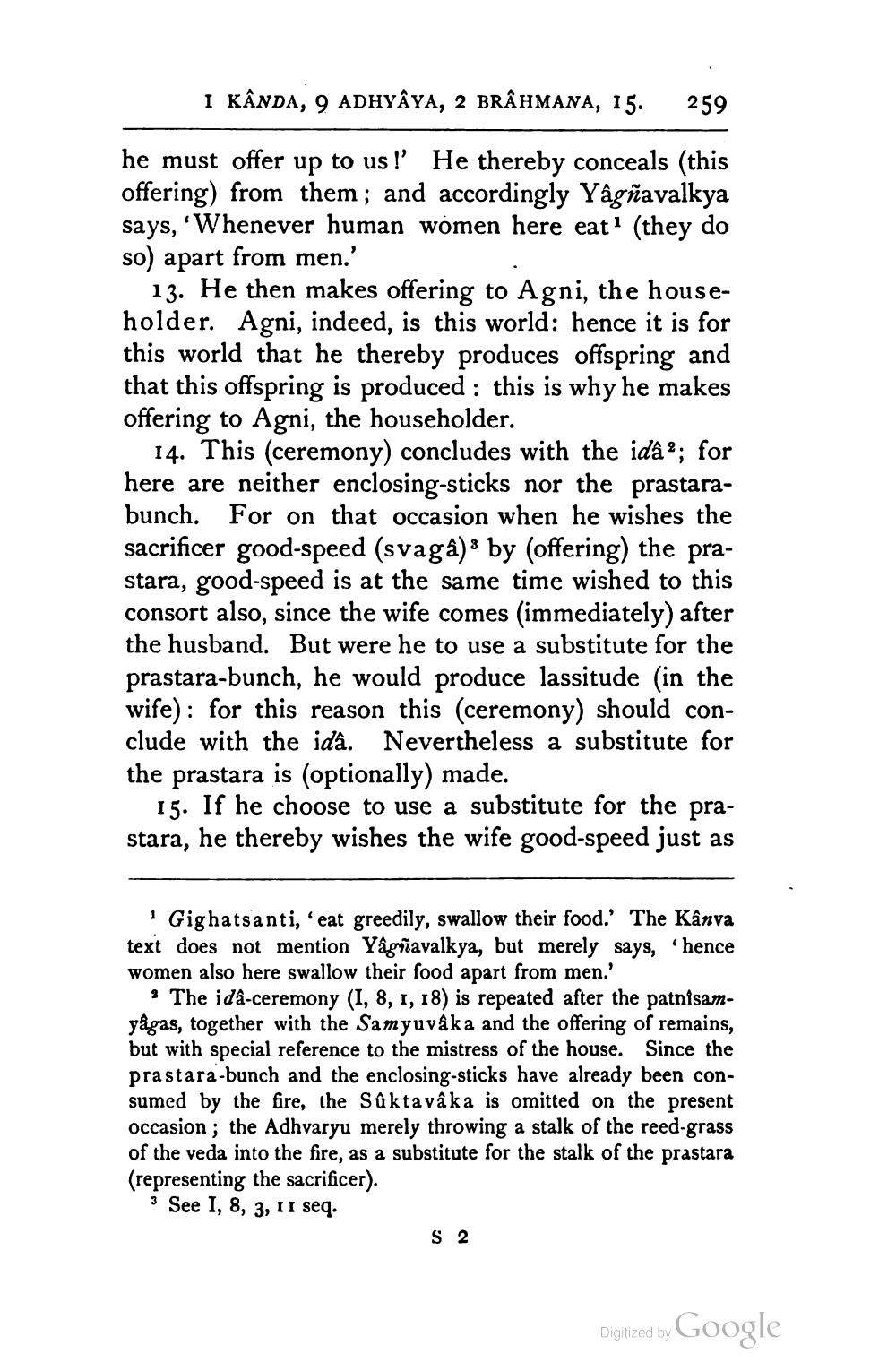________________
I KÂNDA, 9 ADHYAYA, 2 BRÂHMANA, 15.
259
he must offer up to us!' He thereby conceals (this offering) from them; and accordingly Yâgñavalkya says, 'Whenever human women here eat? (they do so) apart from men.'
13. He then makes offering to Agni, the householder. Agni, indeed, is this world: hence it is for this world that he thereby produces offspring and that this offspring is produced : this is why he makes offering to Agni, the householder.
14. This (ceremony) concludes with the idâ?; for here are neither enclosing-sticks nor the prastarabunch. For on that occasion when he wishes the sacrificer good-speed (svaga): by (offering) the prastara, good-speed is at the same time wished to this consort also, since the wife comes immediately) after the husband. But were he to use a substitute for the prastara-bunch, he would produce lassitude in the wife): for this reason this (ceremony) should conclude with the idà. Nevertheless a substitute for the prastara is (optionally) made.
15. If he choose to use a substitute for the prastara, he thereby wishes the wife good-speed just as
* Gighatsanti, 'eat greedily, swallow their food.' The Kanva text does not mention Yågñavalkya, but merely says, hence women also here swallow their food apart from men.'
9 The ida-ceremony (I, 8, 1, 18) is repeated after the patnisamyågas, together with the Samyuvâka and the offering of remains, but with special reference to the mistress of the house. Since the prastara-bunch and the enclosing-sticks have already been consumed by the fire, the Sûktavāka is omitted on the present occasion; the Adhvaryu merely throwing a stalk of the reed-grass of the veda into the fire, as a substitute for the stalk of the prastara (representing the sacrificer). 3 See I, 8, 3, II seq.
S 2
Digitized by Google




